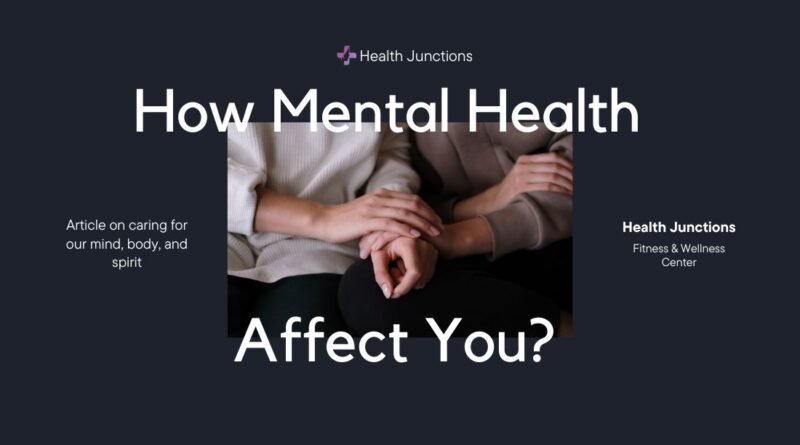Mental Health Affect | How can mental health affect you?
Understanding the Impact of Mental Health on Individuals
In today’s fast-paced world, the significance of mental health cannot be overstated. This article aims to provide a thorough exploration of mental health affect, its common issues, and the profound effects it has on daily life.

Common Mental Health Issues
Anxiety Disorders
Anxiety disorders, encompassing conditions like generalized anxiety and panic disorders, have become increasingly prevalent in our society. This section will delve into the intricacies of these disorders, exploring their symptoms and the toll they take on both the mind and body.
Depression: A Silent Struggle
Depression, often described as a silent struggle, affects millions worldwide. This section aims to shed light on the nuanced symptoms of depression and the impact it has on an individual’s ability to lead a fulfilling life. We’ll discuss the societal implications of untreated depression and the importance of early intervention.
Bipolar Disorder: Riding the Emotional Rollercoaster
Bipolar disorder, characterized by extreme mood swings, poses unique challenges to those affected. Unpacking the highs and lows, we’ll discuss coping mechanisms and strategies for managing this rollercoaster of emotions. This section will offer insights into the daily struggles faced by individuals with bipolar disorder and how they can navigate life effectively.

How Mental Health Affects Daily Life
Impact on Relationships
Poor mental health can strain relationships, leading to communication breakdowns and emotional distance. We’ll explore the ripple effect on personal connections and provide strategies for maintaining healthy relationships amidst mental health challenges. Understanding the dynamics of relationships during challenging times is crucial for overall well-being.
Performance at Work or School
The influence of mental health on academic and professional life is undeniable. This section will delve into the impact on performance, productivity, and ways to navigate these challenges while maintaining mental well-being. Practical tips and coping mechanisms will be discussed to help individuals achieve their best despite mental health challenges.
The Toll on Physical Health
The mind-body connection is powerful, and this section will highlight the intricate relationship between mental and physical health. We’ll discuss how neglecting mental health can manifest in physical ailments and the importance of a holistic approach to well-being. Readers will gain insights into preventive measures and lifestyle choices that can contribute to both mental and physical health.

Recognizing the Signs and Seeking Help
Identifying Symptoms of Poor Mental Health
Recognizing the signs of poor mental health is the first step towards seeking help. This section will provide a detailed guide to identifying symptoms, emphasizing the importance of early intervention. By understanding the signs, individuals can take proactive steps towards maintaining their mental well-being.
Breaking the Stigma: Encouraging Open Conversations
Addressing the stigma surrounding mental health is crucial for fostering a supportive environment. This section will explore the societal challenges and the importance of open conversations to eliminate the barriers that hinder seeking help. By normalizing discussions around mental health, we can create a culture of understanding and empathy.

Professional Help and Support Services
Navigating the vast landscape of mental health support services can be overwhelming. This section aims to demystify the options available, from therapy to support groups, guiding individuals towards the help they need. By providing information on accessible resources, we empower individuals to take control of their mental health journey.
Strategies for Maintaining Mental Well-being
Healthy Lifestyle Habits
The role of a healthy lifestyle in promoting mental well-being cannot be overstated. This section will delve into the impact of nutrition, sleep, and other lifestyle factors on mental health, offering practical tips for cultivating a balanced life. Readers will gain insights into creating habits that contribute positively to their overall well-being.
The Role of Physical Activity
Exercise is not just beneficial for the body but also for the mind. This section will explore the positive effects of physical activity on mental health, providing actionable advice for incorporating exercise into daily routines. From simple exercises to the benefits of outdoor activities, readers will discover ways to make physical activity a cornerstone of their mental well-being.
Mindfulness and Meditation Techniques
In a world filled with constant stimuli, mindfulness and meditation offer solace. This section will introduce various techniques, providing a toolkit for readers to enhance their mental clarity and manage stress effectively. From mindfulness practices to guided meditation, individuals can explore these techniques and integrate them into their daily lives for sustained mental well-being.

Creating a Supportive Environment
Building a Support System
A robust support system is crucial for navigating mental health challenges. This section will guide readers on how to build and nurture a support network that fosters understanding, empathy, and encouragement. Real-life stories and examples will illustrate the transformative power of supportive relationships in overcoming mental health hurdles.
The Importance of Community and Social Connections
Community and social connections play a pivotal role in mental well-being. This section will underscore the impact of shared experiences, social interactions, and a sense of belonging in maintaining a positive mental state. By exploring the role of communities, readers will be encouraged to actively engage and contribute to supportive environments.

Conclusion
In conclusion, understanding the intricacies of mental health is the first step towards fostering a society that prioritizes well-being. By recognizing the signs, seeking help, and adopting strategies for maintaining mental health, individuals can lead fulfilling lives despite the challenges. This comprehensive exploration serves as a guide for both individuals facing mental health issues and those seeking to support loved ones on their journey to mental well-being.

